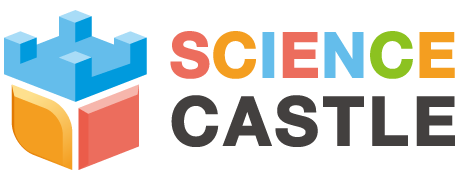- Information for Teachers
Recommendation for a sense of self-protagonism and teacher-protagonism!
2020.10.03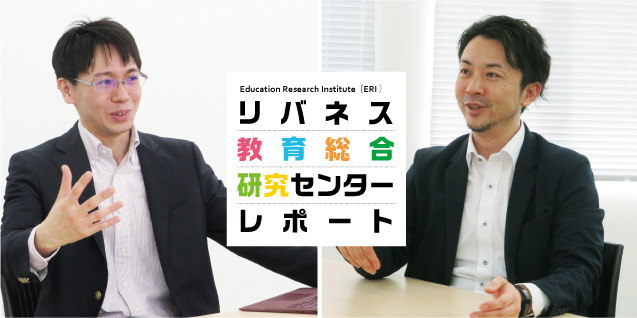
March 2018. Inoue, who has created many new studies at Liverness Corporation, and Dr. Masaki, who had been conducting research on human resource development with schools and companies, met. Inoue said, "I want to research excitement. Mr. Masaki, why don't you join us?" From this single word, the research began.
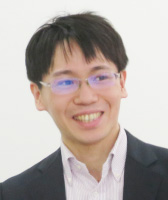 Ikutaro Masaki
Ikutaro Masaki
The University of Tokyo Graduate School
Research Fellow, Graduate School of Humanities and Sociology
D. in Social Psychology from the Graduate School of Humanities and Sociology at the University of Tokyo. As of March 2020, he is a researcher at the Graduate School of Humanities and Sociology and a part-time lecturer at Seikei University. He also serves as an advisor to several private companies in the areas of human resource and organizational research and HR Tech. His main research areas are social psychology and industrial/organizational psychology, with a focus on research related to organizational diversity, and he aims to bridge the gap between academic research and the concerns of the corporate world.
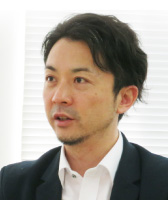 Inoue, Jyo
Inoue, Jyo
LIVERNESS Corporation
Executive Vice President CTO
D., Pharmacist, Tokyo University of Pharmacy and Life Sciences. He is a founding member of LIVERNESS. After completing his doctoral studies, he worked as an assistant professor and lecturer at the Faculty of Science, Kitasato University, and an assistant professor at the Graduate School of Medicine, Kyoto University, before being appointed and concurrently serving as a specially-appointed associate professor at the Institute for Advanced Biosciences, Keio University in 2015, and as a professor of advanced pharmacy at the Faculty of Pharmaceutical Sciences, Kumamoto University and a visiting professor at the Faculty of Pharmaceutical Sciences, Keio University in 2018. While conducting research and development, he is a researcher involved in launching joint research projects with universities and research institutions and supporting the establishment of research institutes.
I want to visualize actions based on interests.
Inoue. It was around this time two years ago that I met Mr. Masaki. We at RIVERNESS are in daily contact with children through our experiment classes and school projects, and through these activities, children are always saying, "This is so interesting! There are still so many things we don't know yet! I want to experiment by myself! I wanted to study the "excitement" that children feel when they think, "This is so interesting! In fact, this is also my driving force as a researcher, and I really want to know about excitement.
Mr. Masaki I've missed it! In fact, just around 2017, one of the schools that was conducting a survey of student attitudes and attitudes was a so-called "advanced school" and another school that was very focused on experiential learning to a lesser extent. I found the comparison between those two schools very interesting. For example, when asked, "What is your dream for the future?" the former school did not give many answers, or gave only the name of a profession, such as "doctor," while the latter school said, "I want to become a person who does 00, because I am a 00! The latter school was filled with a sense of mission, "I want to be a 00 because I want to be a 00," in a positive sense. This is just an example, but what makes these differences? This is just one example, but it was the first time I felt that there was something more to it than just college placement results.
Inoue. That is exactly what it is! I want to study that "something that cannot be measured, something that could only be described by experience". By the way, how would you define "excitement" academically?
Mr. Masaki In social psychology, personality and other characteristics are quantified using questionnaire indices and other methods. However, such characteristics are limited to those that have been elaborated through a combination of various methods in the history of research. On the other hand, excitement is a commonly used term, but it is not clear what the academic equivalent of the concept is, and its academic definition is not clear.
Inoue. I see. Many people have felt excitement before, and somehow know what it is, but it is difficult to put it into words when asked again, "What is it? But when asked again, it is difficult to put it into words. It is true that teachers at school and family members at home know when children are excited. It would be nice to make this sensory understanding more visible.
Excitement, action, and becoming the hero of your own life?
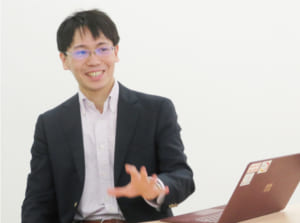 Inoue. In 2018, the first survey you did was with teachers from public preparatory schools, mainly in Tokyo, and it was your first project looking at students from the perspective of excitement with teachers from five different schools, what were your impressions?
Inoue. In 2018, the first survey you did was with teachers from public preparatory schools, mainly in Tokyo, and it was your first project looking at students from the perspective of excitement with teachers from five different schools, what were your impressions?
Mr. Masaki When we conducted the survey in terms of excitement and action, we found a number of things. First, 90% of the students were excited about something, and more than 60% were taking some kind of action. On the other hand, the majority of their actions remained within the realm of familiar behaviors, such as searching the Internet or talking to friends. In addition, the percentage of students who moved from excitement to action decreased markedly as they moved up through the grades. However, the changes between grades varied from school to school. In some schools, the number of students moving from excitement to action decreased dramatically as the school year progressed, while in other schools the values did not change much and in others they tended to increase, albeit slowly.
Inoue. What did you find out where the difference came from? Please let me know, even if it is hypothetical.
Mr. Masaki Although additional data is still needed, the excitement and behavior of schools that focus on inquiry activities showed a decrease as the school year progressed, but the transition was more gradual than in other schools. Perhaps it is the school's creation of initiatives that deepen students' interests, such as research activities. Or perhaps creating an atmosphere of "it's okay to deepen your interest" through activities may be encouraging students to act out of excitement.
Inoue. By testing hypotheses about what initiatives lead to excitement and action, we can gradually clarify the concept of excitement.
Mr. Masaki Yes, I am! In the early days of this study, we thought that excitement was similar to the overlapping concepts of intellectual curiosity, immersion, and perceived value. Later, as we continued our research in various schools, we actually gradually grasped a different aspect of excitement. I have come to feel that perhaps it is not only such things as curiosity and a desire to learn, but also the recognition of one's own abilities, even if mistakenly, and the sense that one is the hero of one's own life that is important. In academic terms, I think words like "self-efficacy," "sense of control," and "agency" are close to this.
Inoue. I love the part about it being okay to be wrong. The researchers I deal with on a daily basis who say, "I'm going to change the world with this technology! are all full of a sense of self-possession (laughs). Last time, a venture company researching the functional value of eggplant finally developed a supplement two years after its establishment. I think they still have a lot of concerns, but they always talk about the appeal of eggplant with a twinkle in their eyes. By strongly wanting to do something and taking action, I come up with the next concrete action. I think that through a series of such actions, I will be better able to realize what I want to do.
Students seize opportunities by taking action on their own initiative.
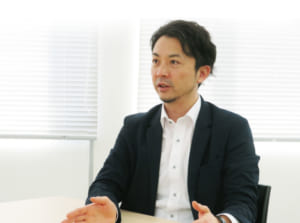 Inoue. On the other hand, I don't think it is necessarily true that the sequence of events will work from the beginning. For example, if you are excited and try to make a few moves first on your own, you may fail. Then there are many students who don't know what to do next, and so on, until they continue to take action. In this research, I would like to elucidate how to create a state of "keep on doing and doing" by providing support.
Inoue. On the other hand, I don't think it is necessarily true that the sequence of events will work from the beginning. For example, if you are excited and try to make a few moves first on your own, you may fail. Then there are many students who don't know what to do next, and so on, until they continue to take action. In this research, I would like to elucidate how to create a state of "keep on doing and doing" by providing support.
Mr. Masaki Comparisons between schools suggest that differences in teachers' instructional policies and school culture may have influenced the differences. From the results of the survey and interviews, many of the teachers at the schools where the students were excited and active seemed to respect the students' independence, saying, "Just try it. and respecting their students' autonomy, except for the dangerous ones.
Inoue. The teacher presents a "let's give it a try". Even if it is a failure, if we can think together about why it happened, we can surely come up with the next challenge. The next step is almost here. I can create an opportunity for students to get moving.
Mr. Masaki I was at an on-campus presentation of an inquiry activity at one of my schools. Many of the students were able to see the research theme as their own and were able to talk about their reasons for doing the research in their own words. When I asked the students about their reasons, I found that there was apparently little direct intervention by teachers, and they were not taught in detail how to present their work. Rather, many of the students were following the example of "older students who were doing well in their research and presentations," and were proceeding with their exploration activities on their own initiative. If I had to say something, I would say that teachers gave students many "opportunities to express their opinions" and asked questions that encouraged them to do so (why do you think so? ). Perhaps it is because the teachers show the students a rough path but do not teach them by hand that the junior students start moving forward with the honest motive of "I want to be like the cool senior students".
Inoue. I know that seniors are grabbing all kinds of information and knowledge by starting on their own, and juniors are taking that step as well. It is good! Now that many schools are closed to prevent the spread of coronavirus1, it occurred to me that I wonder if children are able to learn on their own when they stop going to school. When I was a small child, I used to observe ants without being told to do so. I think it is important for children to be able to move on their own like that even after they grow up.
Mr. Masaki One school decided to move forward with an online initiative to prevent coronavirus infection, mainly through web-based delivery of classes, and I was very impressed with the last sentence of the announcement to current students on the school's website. The main idea was that "This is a new initiative, so there may be some things that will not go well," and "We ask students for suggestions for improvement and constructive feedback to help us improve our activities. The realization that students' own ideas will change the school may be cultivated through these kinds of questions.
Inoue. I like it! I feel like I am truly becoming the main character and creating my own school. I would like to see more and more learning that is not given to the students, but that they grasp on their own. I think this is one of the ideal ways for a school to be.
How many lux is that twinkle in your eye that you couldn't measure?
Inoue. I believe that the knowledge that will come out of this research is actually something that some teachers already know. But maybe not all of them. Actually, I started thinking a while ago, if there is a "measurable world" and an "unmeasurable world" in education, I wonder how much of the information in daily school life is from the "unmeasurable world" that is represented by the teachers' long-cultivated experience and intuition, and how much is from the "measurable world" And.
Mr. Masaki By visualizing information that could not be measured and combining it with the experience of teachers, I believe that new knowledge in the school setting will be created. While student self-efficacy is important, teacher self-efficacy, in which teachers feel they can change many things at their own discretion and ingenuity, is also important. I would very much like to discuss with teachers across the country what kind of combination of experiences we can have, and I would like to work together with them.
Inoue. Let's do it! When we were children, we were all excited and took action on things we were interested in. But as the school year progressed, we were socially stopped because "you are already a 00 student. But essentially, school is a place to acquire the ability and knowledge to survive in society, not a place to go on to higher education. Fortunately, in recent years, the way of thinking about education has been changing. We believe that by further expanding the scale of our research activities, enriching the data, and working together with teachers, we can realize a world where children's eyes sparkle even more.
This interview took place on Wednesday, March 12, 2020.
*Reprinted from "Education Support vol. 46
